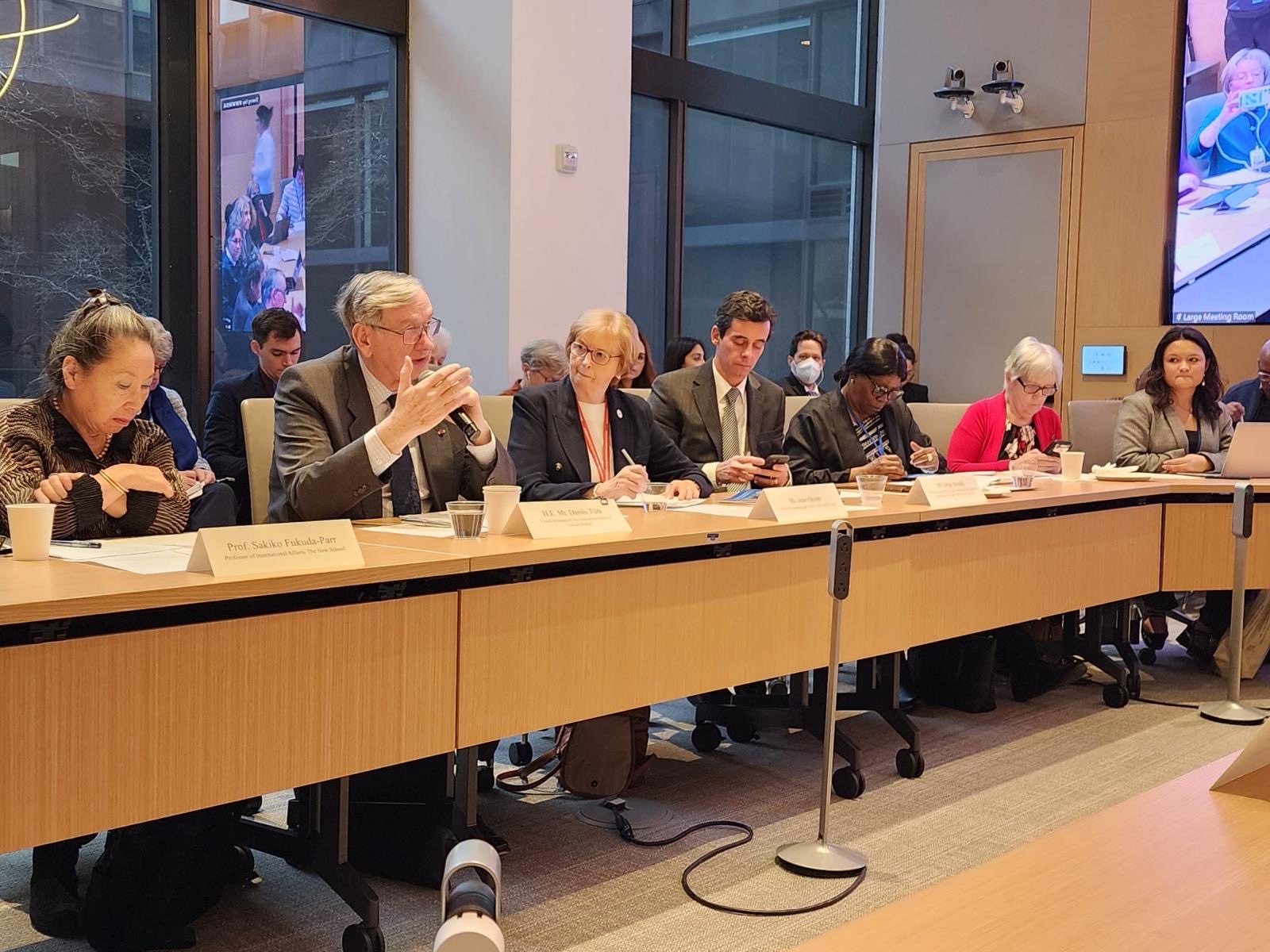
6 February 2024, CSocD62 Side Event organized by the NGO Committee for Social Development in the Baha’i International Community’s Office, 866 UN Plaza, in New York City, and online.
Poverty Eradication and Social Inclusion
Where do we stand with Poverty Eradication? What do we mean by social inclusion?
I. Poverty eradication has been the slowest progressing aspect of the SDGs, MDGs, and the progressing sustainment of the Copenhagen Declarations aims.
II. All people experiencing extreme poverty must be permitted access to decision-making spaces in order to provide their authentic and crucial insight.
III. Eradicating poverty, promoting full employment, and fostering social inclusion are the three main pillars of the Copenhagen Declaration.
IV. We have witnessed progress in poverty reduction globally, and some countries, such as Portugal, have developed successful poverty elimination initiatives to improve living.
V. Alongside progress in poverty reduction, many nations have implemented policies and nourished profound progress towards aiding in the enhancement of social inclusion.
VI. It is vital to note that when we discuss social inclusion, Women and Marginalized Communities, such as those with disabilities, should also be included in decision-making spaces. VII. In regards to the struggles of social inclusion in decision-making spaces, it has also become more evident that there is shrinking space available at the United Nations for civil society. VIII. It is also evident that the United Nations struggles with storytelling, hence why others often declare they lack transparency towards understanding the UN's initiatives, excluding them from understanding and aiding the social development efforts of institutions.
The Importance of Partnerships and Current Goals for Social Development Globally
Why do we need Partnerships? What Current Aims Should we Uphold for Social Development?
I. The Copenhagen Declaration emphasizes the need for partnerships: Partnerships between governments, civil society, academia, and scientists to implement the very policies we promote.
II. Social partnerships with those who harbor lived experience is crucial as well, as we should always address the issues of others, mainly when they are present in the room with us.
III. Partnerships of different kinds are established to nourish nations' inter-governance and multilateralism further.
IV. One of our main goals now as member states, NGOs, and activists is to identify NEW challenges, and effectively plan ahead to prevent their further expansion.
V. In regards to uncovering new challenges our main goal should also be to locate the gaps presently depicted within humanity; these gaps concern social gaps, technology gaps, and development divides depicted between rural and urban regions.
Portugal informs others of their attempts to achieve the 5 goals of:
- Investing in children through a child guarantee: guaranteeing children access to educational, medical, and housing resources.
- Attracting skilled labor.
- Investing in Professional Education: to aid in nourishing employment potentials for jobs that are presently needed.
- Leaving no one behind: ensuring that social models must be inclusive and address differing peoples in humanity.
- Honoring social contract: combating divisions and allowing all access to universal health and social protection.
Lessons Learned From The Declaration, & Activist Approach
What Have We Learned? Why is employing an Activist Approach vital?
Lessons Learned:
1. The further employment of data-analyzation is crucial to social development. 2. Gender gaps and addressing such gaps are crucial to honoring and effectively following the ideals of the Copenhagen Declaration and should be further promoted.
3. Although Intergenerational relations are not directly expressed in the declaration they are crucial for others to know, acknowledge and honor, and this new aspect of life is one we now are aware of.
4. We have learned that Debt management and financing social development are essential topics to explore within this discourse, and one should perpetually follow the discussion with these crucial subject matters in mind.
Activist Approach:
I. Speakers heavily promoted the importance of utilizing an activist approach to nourish the ideals of the Copenhagen Declaration further.
II. Activist Approaches are strongly supported by engaging in the World Social Summit and continuing to acknowledge and employ the power of NGOS.
Examining the Macro-Economic Causes of Poverty: Monopoly Capitalism
I. We must analyze the macro-economic causes of poverty.
II. We are constantly focusing on social investments as solutions for poverty. However, macroeconomic policies are the most important for combating these issues.
III. The economy has shifted to a monopoly capitalism where the share of the workers who produce the product we swiftly consume is negligible.
IV. We must develop counter-narratives to combat the ideals of Monopoly Capitalism which presents four pillars: Interest, Ideology, Information, Institutions.
What do we envision for the next concrete steps that we may take?
I. We should work towards allowing everyone access to equal rights and medical and educational structures.
II. Governments must start thinking about giving priority in their budget to social development.
III. The global employment rate is still struggling, and we are facing the lowest employment level in the last two decades. Hence, 3 Pillars humanity should be looking towards to improve present social development issues are:
IV. Future: we must look towards what we desire to be implemented in the future to improve present conditions.
V. Trust: we must trust one another to develop effective solutions: There is an erosion of trust in institutions; this lack of trust is also caused by the unfairness of our present systems. Hence, To enhance trust in our systems, we must also encourage the further promotion of accountability.
VI. Time: we need to concentrate our time on overcoming differences. We must stress the participation of stakeholders to promote collaboration.
For more information about the 62nd Commission for Social Development (CSocD62), please visit: https://social.desa.un.org/csocd/62nd
Source: NGO Committee for Social Development & Baha’i International Community
 Welcome to the United Nations
Welcome to the United Nations